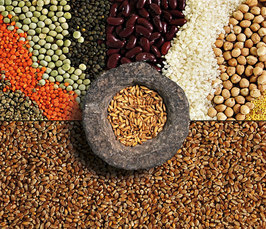Food Security in Flux: Archaeological Methods for Economic Sustainability
DA Workshop
- Start: May 2, 2019
- End: May 3, 2019
- Location: MPI SHH Jena
- Room: Villa V14
- Host: Department of Archaeology
- Contact: bullion@shh.mpg.de

As the world population approaches 8 billion and we are faced with climatic and political uncertainty, global food security is becoming a growing concern. However, humans throughout history and prehistory have faced uncertainty in their food production systems, often in response to political changes, social turmoil, climate change, and/or technological shifts. There are many historical examples of changing political regimes directly effecting which crops farmers plant or the way that crops are cultivated, harvested, and processed. This workshop will discuss reconstructions of ancient food security strategies as a tool to develop practices for future economic sustainability. The study of ancient food security allows us to examine this issue at a chronological scale inaccessible to modern research, and in diverse social, cultural, and political contexts. We are particularly interested in exploring the ecological and social consequences of the transition from traditional agricultural systems, focused on low investment crops to systems dependent on crops of high yield, but high labor and resource input. Often, the transition to high input crops is fueled by cash cropping and ties people into unstable market economies. These economic transitions commonly reshape economic strategies from recruitment of diverse resources to intensification of a narrow suite of foods. These historical food transitions parallel, in many ways, modern shifts from small-scale family farms to large agrobusiness ventures. In this workshop, we seek to develop methods to document if and how people maintained food production under rapidly changing political, ecological, and economic systems.